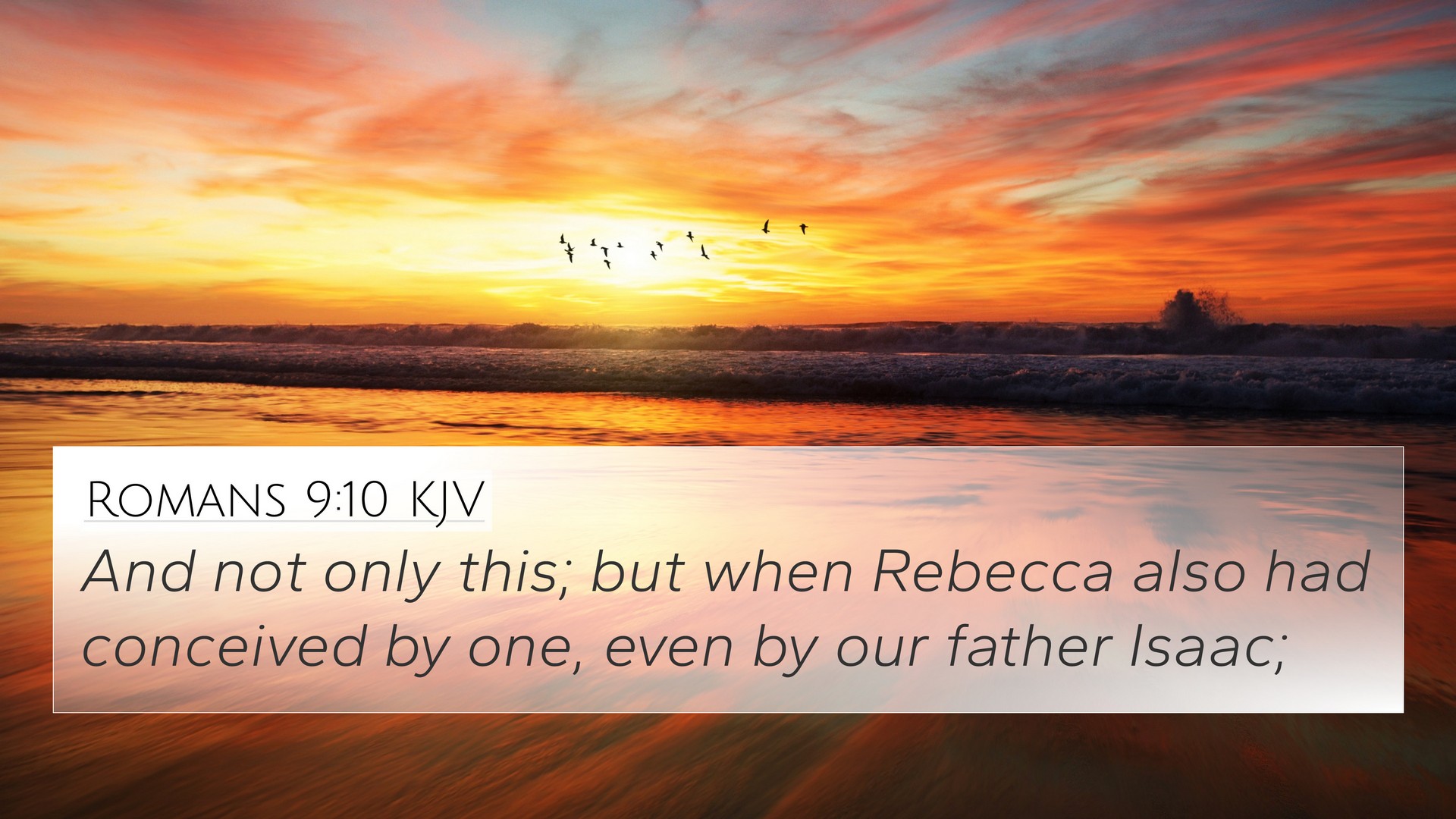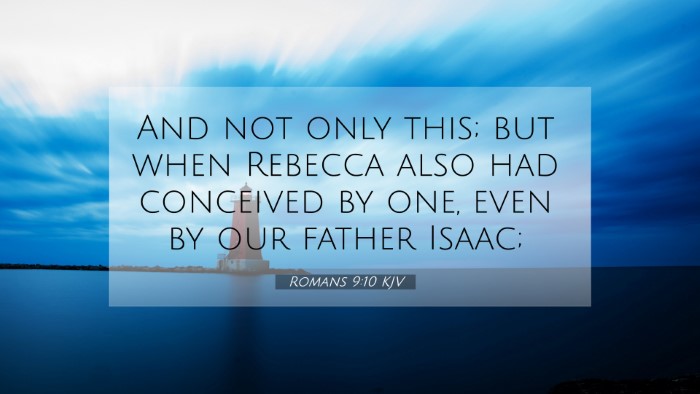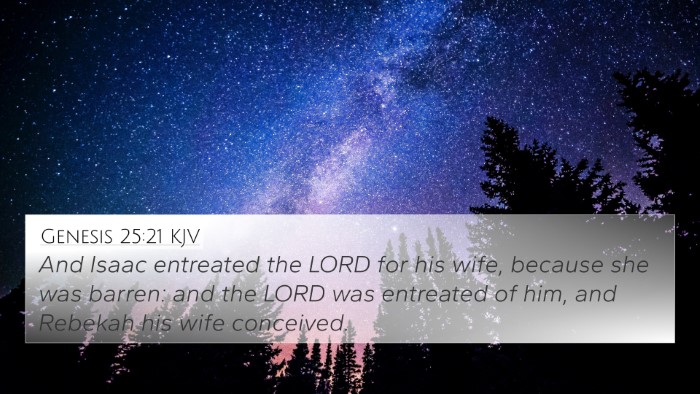Meaning and Interpretation of Romans 9:10
Verse: "And not only this; but when Rebecca also had conceived by one, even by our father Isaac;" (Romans 9:10)
Overview of Romans 9:10
Romans 9:10 carries profound significance in the broader context of Paul's discussion on God's sovereignty and the divine choice in salvation. In this verse, Paul refers to Rebecca's conception of twins, Esau and Jacob, to illustrate God's unmerited election and plan for Israel and humanity.
Commentary Insights
Matthew Henry's Commentary
Matthew Henry emphasizes the importance of God's choice in the account of Jacob and Esau, pointing out that this selection is not based on human merit but rather on God's sovereign will. He notes that the narrative from Genesis illustrates the truth that God’s providence works through families and nations, showing His intentions and purposes unfold through individual lives.
Albert Barnes' Notes
Albert Barnes highlights the significance of the context, stating that this verse serves to confirm the argument that God sovereignly chooses those who will receive His blessings. He observes that the mention of both twins signifies God's plan which existed even before they were born, underscoring the concept of predestination in divine grace.
Adam Clarke's Commentary
Adam Clarke provides an in-depth historical background, indicating that Rebecca's bearing of twins was also a fulfillment of God's earlier promise to Abraham. Clarke points out that this verse fits into the larger narrative of God's covenant and the unfolding of His redemptive plan through Jacob, emphasizing that God's choices often defy human expectations and societal norms.
Thematic Connections
This verse connects with several major themes within the Bible, including:
- Divine Sovereignty: God's supreme authority in choosing who receives His grace.
- Election and Predestination: The concept that God has chosen certain individuals for His purposes.
- Family and Covenant: The importance of lineage in God’s promises and dealings with humanity.
- Contrasts in God's Plan: The differences between Jacob and Esau serve as a reminder of God's mysterious ways.
Cross-References
Understanding Romans 9:10 is enhanced by exploring cross-references throughout Scripture, which illustrate the interconnectedness of biblical themes:
- Genesis 25:21-23: Rebecca's pregnancy, where God reveals the destiny of her sons.
- Ephesians 1:4-5: Discusses God's choice of believers before the foundation of the world.
- Hebrews 11:20: Acknowledges the faith of Isaac and Jacob's blessing of future generations.
- Malachi 1:2-3: God's statement on loving Jacob and hating Esau, reflecting divine choice.
- Romans 8:29-30: The process of God's foreknowledge and predestination for believers.
- 2 Timothy 1:9: God's grace, which is given according to His own purpose and grace.
- Philippians 1:6: The assurance that God completes the work He begins in believers.
Conclusion
The verse Romans 9:10, while seemingly simple, carries rich theological implications regarding God's sovereignty, election, and the unfolding of His covenant promises. The interconnectedness of Scripture reveals deeper understandings through the lens of cross-referencing various biblical texts. By closely examining such relationships, believers can grasp the comprehensive narrative of God’s redemptive plan as revealed through both the Old and New Testaments.
Tools for Bible Cross-Referencing
For those seeking to delve deeper into Bible verse cross-references, there are several tools available:
- Bible concordance: A comprehensive alphabetical list of words used in the Bible.
- Bible cross-reference guide: A structured resource identifying connections between verses.
- Cross-reference Bible study: Methods of examining related scriptures for a fuller understanding.
- Bible chain references: Linking verses in a chain to illustrate related topics or themes.
Utilizing Cross-References Effectively
Understanding how to find cross-references in the Bible can significantly enrich one’s study. Some effective methods include:
- Identifying thematic connections: Looking for overarching themes in scripture.
- Using a Bible app: Many apps provide features to quickly find and trace references.
- Engaging with study Bibles: Annotated Bibles often provide commentary on related verses.
- Participating in group studies: Sharing insights with others can reveal new connections.






